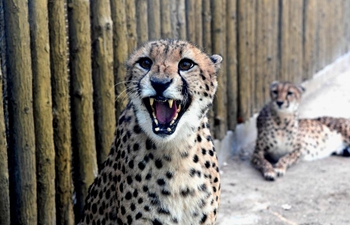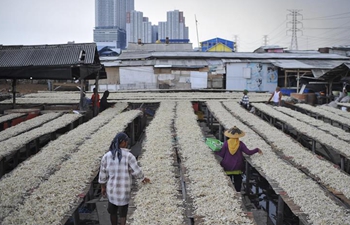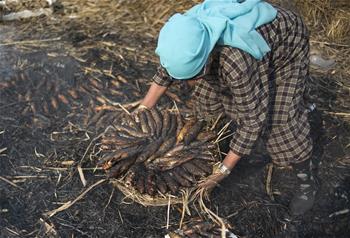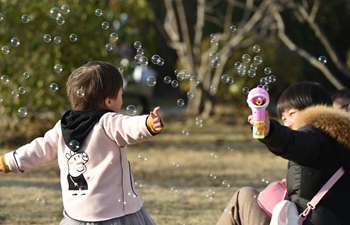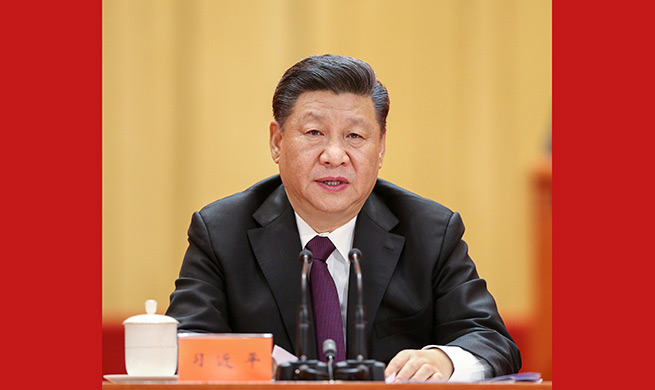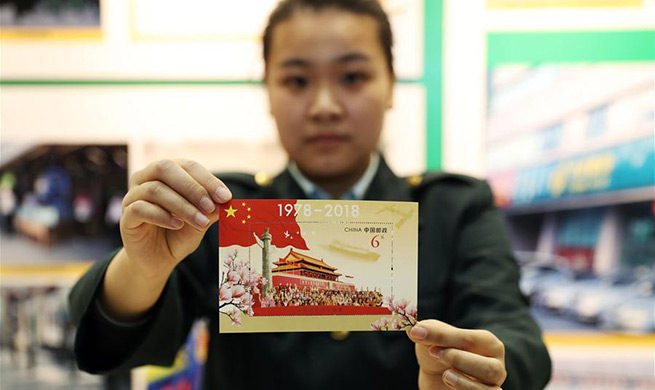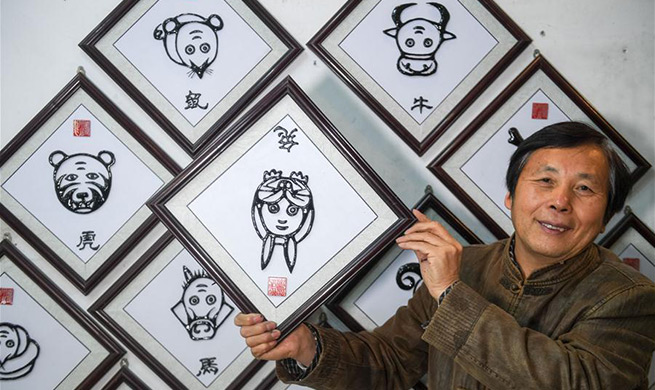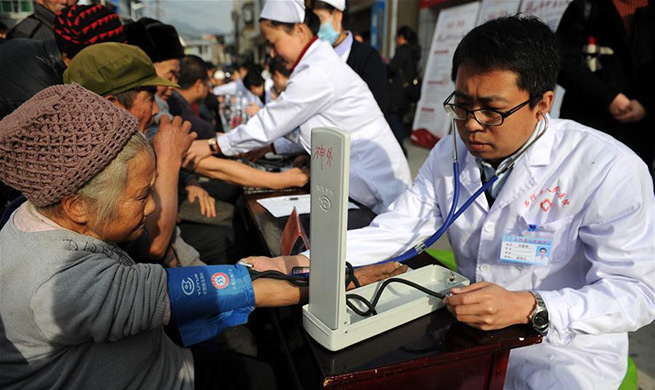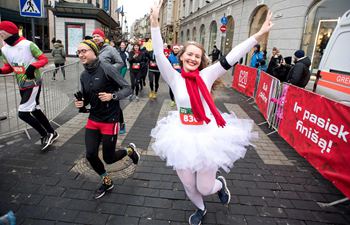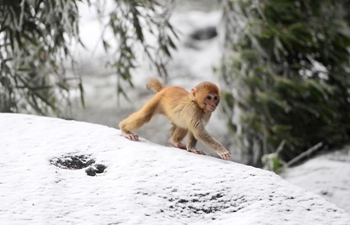UNITED NATIONS, Dec. 18 (Xinhua) -- A 1-month-old baby has become the world's first child to be given a vaccine delivered commercially by a drone in a remote island in the South Pacific country of Vanuatu, said the UN Children's Fund (UNICEF) on Tuesday.
The vaccine delivery covered almost 40 km of rugged mountainous terrain from Dillon's Bay on the west side of the island to the east landing in remote Cook's Bay, where 13 children and five pregnant women were vaccinated by a nurse on Tuesday.
Joy Nowai was lucky enough to become the world's first child to be administered a drone-delivered vaccine.
Cook's Bay, a small, scattered community that does not have a health center or electricity, is only accessible by foot or small local boats, said UNICEF.
"Today's small flight by drone is a big leap for global health," UNICEF Executive Director Henrietta Fore said in a press release. "With the world still struggling to immunize the hardest to reach children, drone technologies can be a game changer for bridging that last mile to reach every child."
Vaccines are difficult to transport as they need to be carried at specific temperatures. Warm weather locations like Vanuatu, which is made up of more than 80 remote, mountainous islands stretching across 1,300 km and with limited roads, is a particularly difficult location for vaccine delivery. As a result, almost 20 percent of the country's children miss out on their essential childhood vaccines, according to UNICEF.
"It's extremely hard to carry ice boxes to keep the vaccines cool while walking across rivers, mountains, through the rain, across rocky ledges. I've relied on boats, which often get canceled due to bad weather," said Miriam Nampil, the nurse who injected the world's first drone-delivered vaccine. "As the journey is often long and difficult, I can only go there once a month to vaccinate children. But now, with these drones, we can hope to reach many more children in the remotest areas of the island."
During the drone flight, the vaccines were carried in Styrofoam boxes with ice-packs with a temperature logger. An electronic indicator is triggered if the temperature of the vaccines swings out of acceptable range, according to UNICEF.
In tests last week, the Health Ministry of Vanuatu, with support from UNICEF, conducted drone trials with two drone operators, using test payloads.
Swoop Aero, the Australian company responsible for Tuesday's successful drone delivery, passed the first phase of trials by landing the payloads within 2 meters of the target after a 50-km flight over numerous islands and waypoints, said UNICEF.
This is also the first time globally that a government is contracting a commercial drone company to transport vaccines to remote areas. The drone operators are selected after a bidding process, and as by the contract, they are held accountable and not paid if they don't deliver, said UNICEF.
In the long term, the government of Vanuatu is interested in integrating the drone delivery of vaccines into their national immunization program and using drones more widely to distribute health supplies. The data from the trials will also be used to show how drones can be used commercially in similar settings around the world, said UNICEF.
"Today's first-of-a-kind vaccine delivery has enormous potential not only for Vanuatu, but also for the thousands of children who are missing out on vaccines across the world," said Fore. "This is innovation at its best, and shows how we can unlock the potential of the private sector for the greater good of the world's children."




